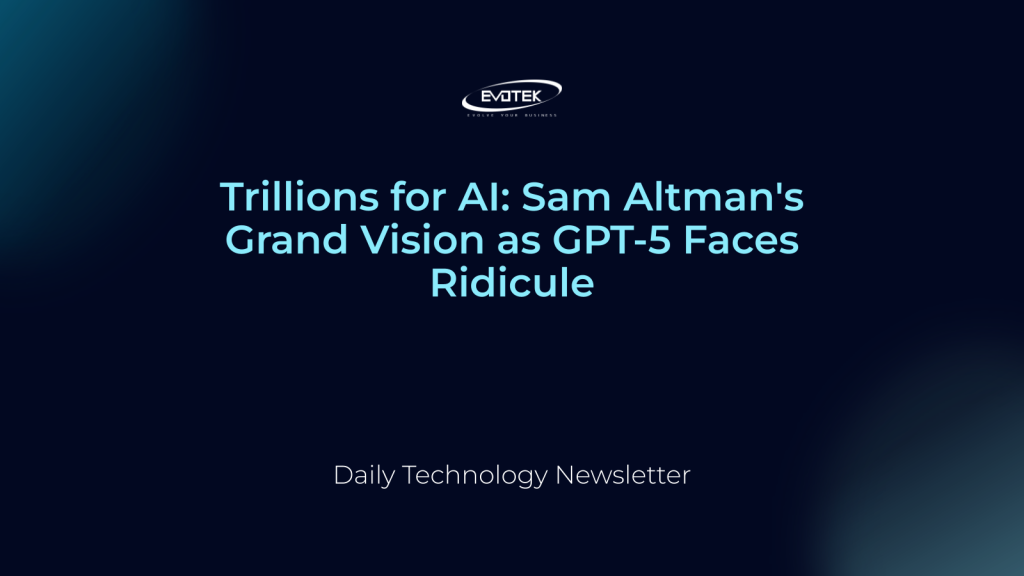OpenAI’s latest large language model, GPT-5, has been met with a wave of user criticism since its launch, with many deeming it “dumb,” “boring,” and inferior to previous iterations. Yet, amidst this backlash, OpenAI CEO Sam Altman maintains a remarkably optimistic outlook, outlining a future that involves unprecedented investment in artificial intelligence infrastructure, potentially costing “trillions” of dollars.
During a recent dinner in San Francisco with journalists and OpenAI executives, Altman candidly addressed the challenges faced by GPT-5’s rollout. “I think we totally screwed up some things on the rollout,” he admitted, according to reports. Despite these acknowledged missteps, Altman painted a picture of robust growth and user engagement. He noted that OpenAI’s API traffic doubled within 48 hours and continues to climb, with the company facing GPU shortages due to demand. ChatGPT, too, is reportedly reaching new user highs daily, and the model switcher feature has garnered positive feedback. Altman emphasized the valuable lesson learned about upgrading a product for hundreds of millions of users simultaneously.
Navigating the “AI Bubble”
Altman also engaged with the popular notion that the AI industry might be in a “bubble,” akin to the early internet boom. “Are we in a phase where investors as a whole are overexcited about AI?” Altman posed, before answering definitively, “My opinion is yes.” This acknowledgment aligns with growing concerns among critics and commentators who question the sustainability of the current AI frenzy, pointing to instances like a recent stock dip for datacenter and AI infrastructure startup Coreweave.
Drawing parallels to historical economic bubbles, Altman explained, “When bubbles happen, smart people get overexcited about a kernel of truth.” He cited the tech bubble and the internet’s emergence as examples where genuine innovation fueled excessive enthusiasm. The core belief, he suggests, is that the vast sums of money currently pouring into AI will eventually yield significant profits, though the timeline remains unclear.
A Trillion-Dollar Question
Despite acknowledging the speculative nature of the current AI landscape, Altman’s plans for OpenAI’s infrastructure are staggeringly ambitious. “You should expect OpenAI to spend trillions of dollars on data center construction in the not very distant future,” he informed reporters. This proposed scale of investment, comparable to the GDP of entire nations, prompts a crucial, often unasked question: Is AI truly worth it from a societal cost-benefit perspective?
This overarching query can be broken down into more specific considerations:
- Is spending trillions of dollars justified for developing chatbots that provide “mildly amusing” interactions and offer accurate information only a fraction of the time?
- Could these trillions be better allocated to pressing global issues, such as poverty alleviation or enhancing educational systems?
- Are chatbots a fundamental societal necessity, or are they merely a convenient amenity?
- How much more beneficial is AI compared to existing search engines, and can’t we simply rely on the latter?
- Do the negative externalities associated with widespread AI adoption—including a massive energy footprint, potential cognitive impacts on users, and the rise of academic cheating—outweigh its perceived benefits, such as slightly more convenient access to information?
These questions, while seemingly fundamental, are rarely at the forefront of discussions with AI industry leaders. The hope remains that future conversations will delve deeper into the broader societal implications and value proposition of such monumental investments in artificial intelligence.

 日本語
日本語 한국어
한국어 Tiếng Việt
Tiếng Việt 简体中文
简体中文